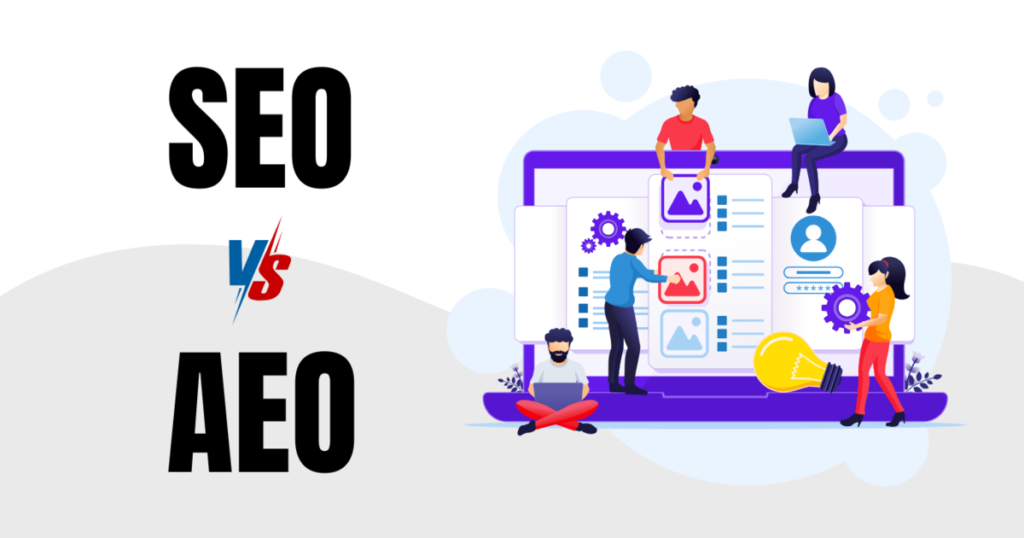In the ever-evolving world of digital marketing, staying ahead means understanding not just the tools we use—but the strategies behind them. Two of the most talked-about techniques today are SEO (Search Engine Optimization) and AEO (Answer Engine Optimization). While they might seem similar, they have subtle yet significant differences. But ultimately, they both aim for the same goal: visibility and ranking.
What is SEO?
SEO is all about optimizing your content and website to rank for specific keywords on search engines like Google. Traditional SEO focuses on:
- Keyword research and placement
- On-page optimization (titles, meta descriptions, headers)
- Backlink building
- Site structure and performance
In short, SEO is about ensuring your site appears in search engine results when users type in relevant keywords.
What is AEO?
AEO, or Answer Engine Optimization, is a newer concept that focuses on optimizing content specifically to provide direct answers to user queries—often in the form of voice searches or featured snippets (like Google’s “People Also Ask” or quick answer boxes).
AEO is closely tied to:
- Natural language queries
- Structured data and schema markup
- Conversational content
- Context over exact-match keywords
In AEO, you’re not just targeting a keyword—you’re targeting how a user asks a question and aiming to be the answer.
SEO vs AEO: What’s the Difference?
| Aspect | SEO | AEO |
|---|---|---|
| Focus | Keywords | User queries and intent |
| Goal | Rank in search results | Be the direct answer (voice/text) |
| Content Style | Keyword-optimized, strategic | Conversational, natural language |
| Format | Web pages | Structured answers (snippets, FAQs) |
| Technology Used | Meta tags, backlinks, sitemaps | Schema markup, NLP, structured data |
But Here’s the Catch: Both Aim to Rank
Whether it’s SEO or AEO, the end goal remains the same: getting your content seen. Whether it’s ranking in the traditional “blue links” of search engines or being the featured answer read aloud by a voice assistant—visibility is key.
That’s why smart marketers are now blending both strategies:
- Writing content that’s both keyword-optimized and conversational
- Adding schema markup for better machine readability
- Creating FAQ sections that mirror how users naturally ask questions
Final Thoughts
AEO and SEO aren’t rivals—they’re teammates. If SEO is about helping search engines find and understand your content, AEO is about helping them deliver your content as the best answer.
In today’s digital space, users expect fast, clear, and helpful results. Optimizing for both keywords and queries ensures you show up exactly where and how your audience needs you.
